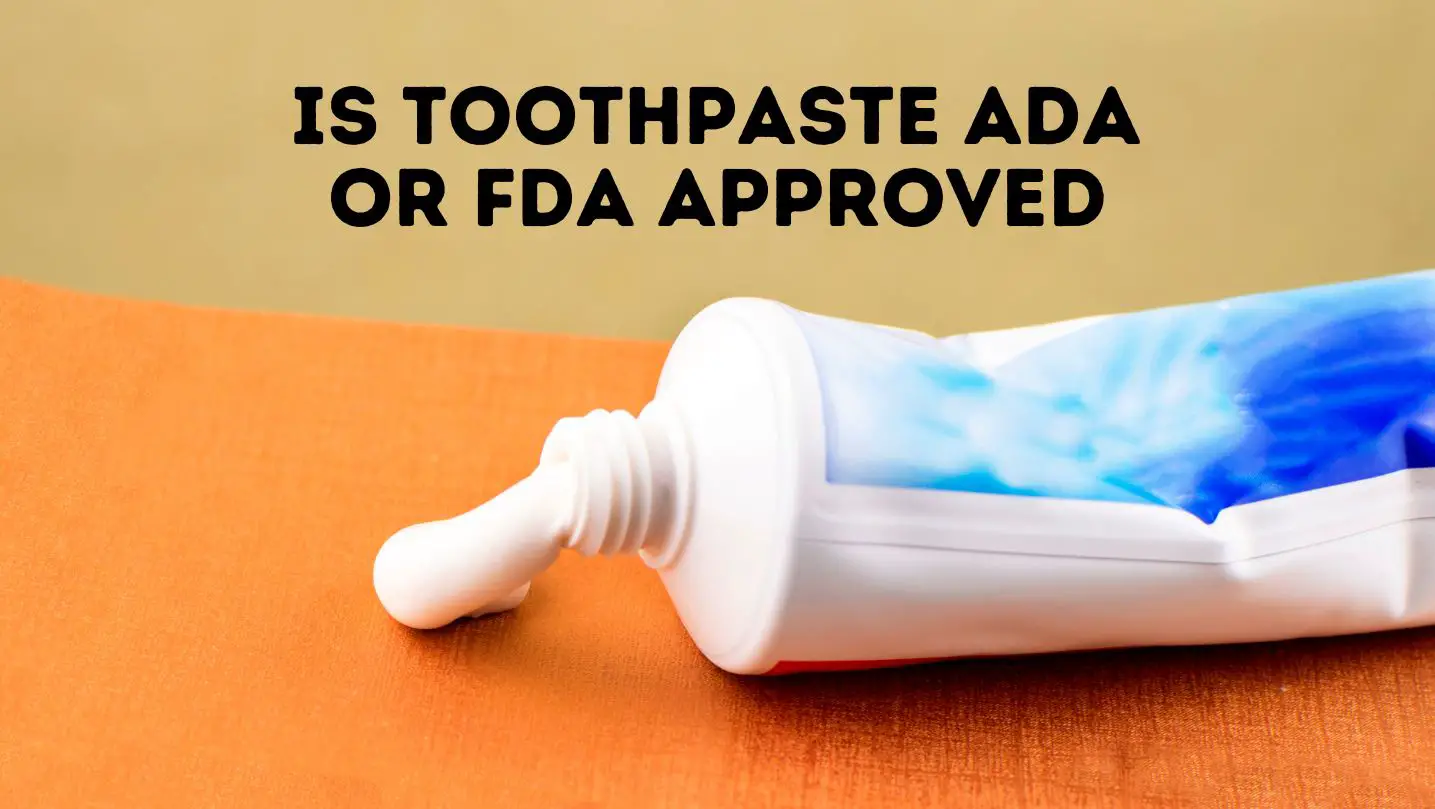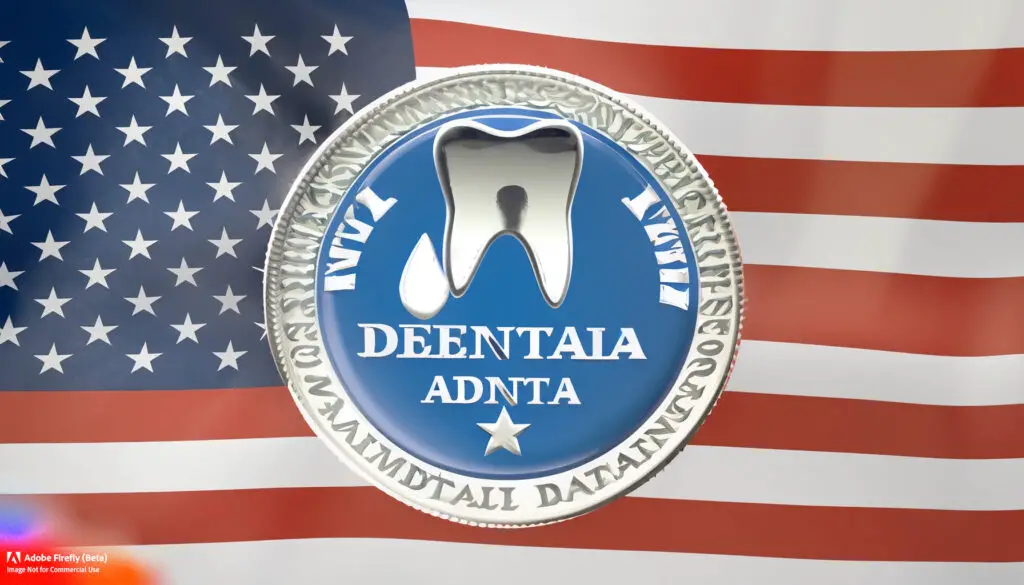
Our consciousness as consumers always tries to pick self-care products that are effective and safe. From what we eat to wear and apply, we always try to choose the best ones. Similarly, when it comes to dental care, the right step is to pick ADA Approved Toothpaste. Reputable regulatory bodies, including the American Dental Association (ADA) and the Food and Drug Administration (FDA), approve toothpaste on several key criteria. Not all toothpaste is ADA or FDA-approved, but many of them have this seal of acceptance.
Understanding the significance of the ADA and FDA seal of acceptance is important for making smart choices about our dental and care routine. Join us in this article as we continue to explore the subject “ADA and FDA-approved Toothpaste.” The American Dental Association evaluates dental products for their ability to meet safety and efficacy standards. In contrast, the Food and Drug Administration focuses on the marketing and labeling of oral care products.
Whether you are curious about what goes into your mouth or are here just to seek some quick information, continue reading.
Table of Contents
What is the ADA and FDA Seal of Acceptance for Toothpaste?
The ADA Seal of Acceptance signifies that the toothpaste is safe and effective for the use it is being marketed for. ADA evaluates the safety and efficacy of dental care products like toothpaste, mouthwash, etc. This reputable regulatory body is recognized as a symbol of credibility and quality. ADA uses rigorous scientific testing and clinical studies to evaluate a dental care product. They adhere to strict guidelines and standards so that every ADA-approved product can be trusted blindly.
FDA, the Food and Drug Administration, on the other hand, doesn’t have any Seal of Acceptance for toothpaste particularly. The role of the FDA is to regulate and oversee the marketing, labeling, and safety of any oral and dental care product. This reputable regulatory ensures that products like toothpaste comply with relevant regulations and are safe for consumers. Toothpaste is already ADA-approved and requires FDA approval before marketing and selling across the United States.
The American Dental Association Seal of Acceptance Requirements
It’s been over 90 years since the American Dental Association Seal of Acceptance has been regulating dental product safety and efficacy. It is the most legitimate organization and stands at number one.
For a toothpaste to earn the American Dental Association seal of acceptance, it should be awarded by the ADA’s Council on Scientific Affairs. In addition, the product must be supported by ADA’s team of scientists concerning fields like microbiology, pharmacology, toxicology, and chemistry. However, not every toothpaste submitted for the ADA seal of acceptance qualifies. As per ADA, the product submission must include clinical and/or laboratory studies data. Further, according to the product category requirements developed by the ADA Council on Scientific Affairs, the submitted data must demonstrate safety and efficiency.
Any toothpaste that meets all the requirement and passes the procedure receive the seal of acceptance for five years. However, as per ADA, if the composition of any product changes during those five years, the company has to update the chemical and safety data again. Any potential changes require additional testing.

What is the value of the ADA Seal of Acceptance?
The ADA Seal of Acceptance for a dental care product holds high value. It helps dentists and other oral care professionals to make informed recommendations concerning the safety and efficacy of a particular product.
The key benefits and values associated with the ADA Seal of Acceptance include the following:
- Assurance of Safety
- Credibility and Trust
- Verified Efficacy
- Informed Purchasing Decisions
- Ongoing Monitoring
- Professional Recommendation
If that’s not enough, ADA welcomes and encourages inquiries about the potential and existing ADA Seal toothpaste. The organization is always ready to answer questions and queries about the seal program and any particular product.
What Toothpastes Are ADA Approved?
Numerous toothpaste brands and variants have earned the American Dental Association (ADA) Seal of Acceptance. Here are some ADA-approved toothpaste currently revolving around the market:
- Colgate Total Whitening Toothpaste Gel
- Tom’s Of Maine Simply White Toothpaste, Clean Mint
- SprinJene Natural Teeth Whitening Toothpaste with Fluoride, SLS Free
- MOON Stain Removal Whitening Toothpaste
- Hello, Naturally Whitening Fluoride Toothpaste
- Burt’s Bees Extra White Fluoride Natural Toothpaste Mountain Mint
- Crest Pro-Health Advanced Gum Restore Toothpaste Whitening
Things to know about ADA Approved Toothpaste
While you can always trust an ADA-Approved Toothpaste, here are a few things to know about the same:
- Every ADA Seal of Acceptance comes from rigorous scientific research that supports their claims.
- For any toothpaste to earn the ADA Seal of Acceptance and Approval, Fluoride is a mandatory ingredient. ADA does not approve any toothpaste formulation that doesn’t contain Fluoride.
- While Fluoride is primary, as per ADA, toothpaste must have another active ingredient.
- to support dental health.
- Sugar can be the biggest flavor in toothpaste, but ADA outlaws sugar since sugar can cause tooth decay; the sweetness in toothpaste comes from other ingredients.
Is Toothpaste FDA Approved?
FDA, the Food and Drug Administration, does not explicitly “approve” individual toothpaste brands or variants. FDA drugs or medical devices, but they do not ‘approve’ toothpaste. Instead, FDA regulates toothpaste and oversees its marketing, labeling, and safety.
Every toothpaste manufacturer must coordinate with FDA regulations to ensure safety and effectiveness. FDA establishes regulations for toothpaste manufacturers concerning its ingredients, labeling, and marketing claims. At FDA, toothpaste doesn’t undergo the same formal approval process as drugs or medical devices. However, FDA does grant marketing approval.
In rare cases of color additives (other than coal tar hair dyes), FDA premarket approval for toothpaste may be necessary.
What Toothpastes Are FDA Approved?
The toothpaste brands must comply with FDA regulations to ensure consumer safety. However, FDA does not have an FDA-approved list of toothpaste like ADA.
Frequently Asked Questions
Is Sensodyne ADA Approved?
Yes, Sensodyne Toothpastes have an ADA Seal of Acceptance. They met the ADA’s criteria for safety and efficacy in addressing tooth sensitivity.
Is Colgate Zero ADA Approved?
Yes, Colgate Zero, the toothpaste for kids between 2 and 6 years, has an ADA Seal of Acceptance. Unlike Colgate® Zero Toothpaste for Kids 3 to 24 months, the one for 2 to 6 years has a Fluoride rich formula that helps it pass the approval of the ADA.
Is Colgate Max White ADA Approved?
Yes, Colgate Max White has earned the ADA Seal of Acceptance.
Do Crest Toothpastes Have the ADA Seal of Acceptance?
Not all of them, but many Creast Toothpastes have the ADA Seal of Acceptance. For instance, Crest Pro-Health Gel Toothpaste – Clean Mint, Crest Pro-Health Toothpaste – Clean Cinnamon, Crest Pro-Health Night Toothpaste, and Crest Pro-Health Whitening are some Crest Toothpaste with the Seal of Acceptance. However, their Baking Soda & Peroxide Whitening, Advanced Cleaning, Dual Action Whitening, and Crest Plus Scope don’t have the ADA Seal of Acceptance yet.
Does ADA Approval for Toothpaste work worldwide?
The American Dental Association (ADA) Seal of Acceptance is specific to the United States. Any toothpaste manufactured, branded, marketed, or sold in the USA must have an ADA seal. Any toothpaste manufactured out of the USA but sold in the USA also should have an ADA seal. Different countries and regions may have their own dental regulatory bodies and associations. Every organization can have its own certification processes and standards.
Wrapping up…
In Conclusion, toothpaste undergoes evaluation and regulation by ADA and FDA. While only ADA and American Dental Association provide approval, FDA oversees marketing and labeling and ensures regulations.

Hi, This is Lyn, I suffer from dental sensitivity for a very long time. PowerToothpaste.com is where I share my views of various toothpaste brands, along with tips on how to use toothpaste and what to look for when purchasing.
